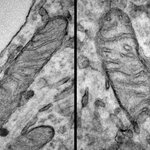
Magnetic fields such as those generated by overhead power lines are considered a potential health risk because epidemiological papers correlate them to neurodegenerative disorders such as Alzheimer's disease and amyotrophic lateral sclerosis (ALS).
Like other concepts that catch the attention of a certain segment of the public, such as GMOs causing cancer, vaccines causing autism, or cell phones causing cancer, it relies on a kernel of scientific truth that is extrapolated out to be a broad effect: Our bodies run on our internal electricity and magnetic fields shape how electricity behaves.…





